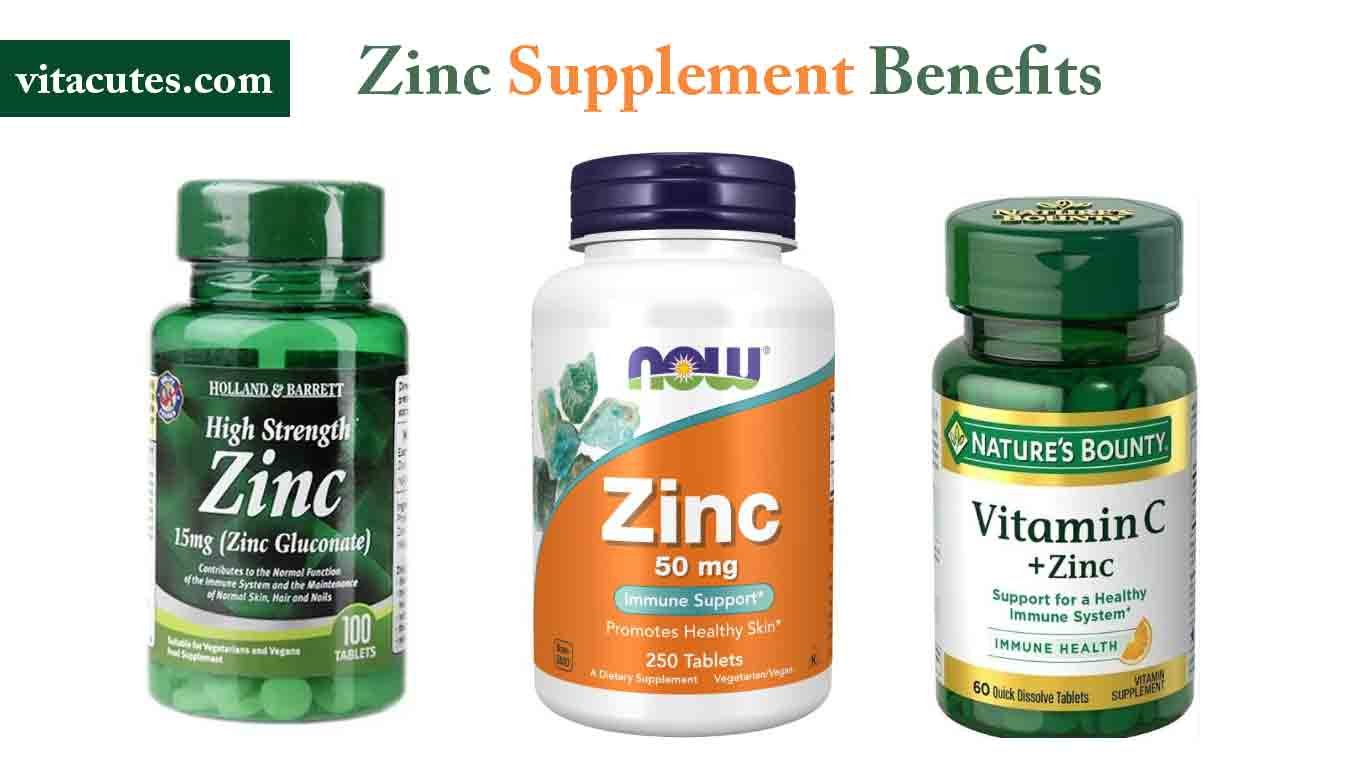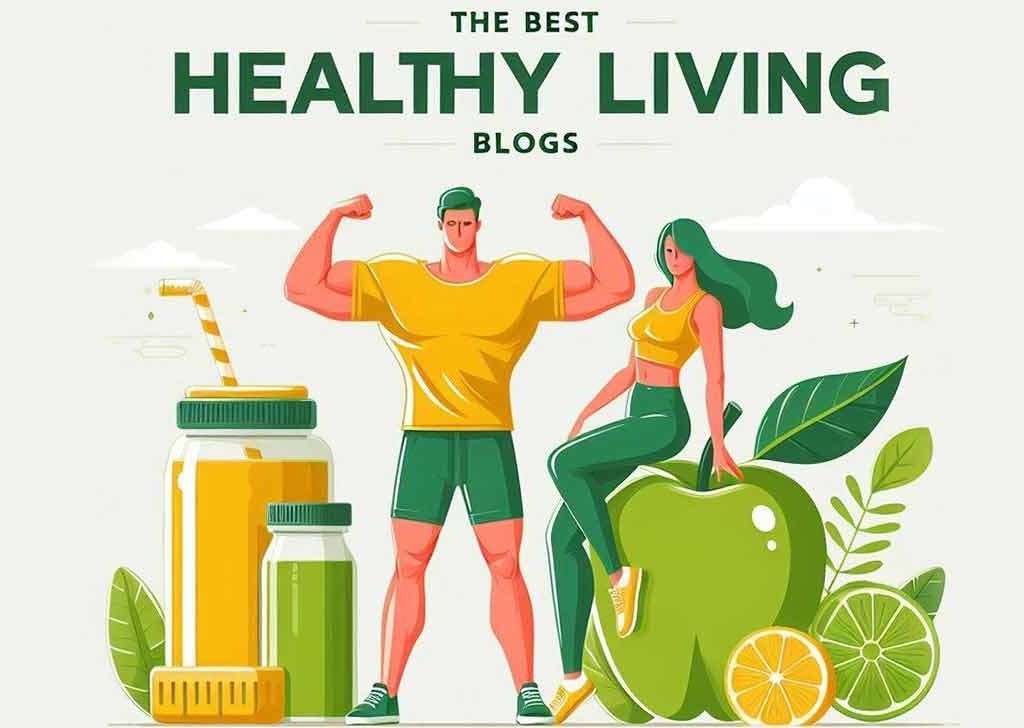Zinc Supplement: Imagine feeling more energized, having a stronger immune system, and experiencing improved skin health—all by simply adding one supplement to your daily routine. That’s the potential power of zinc.
You might be wondering why zinc is often overlooked despite its vital role in your body’s well-being. Zinc supplements could be the missing link in your quest for better health. Whether you’re curious about enhancing your diet or looking for ways to boost your immunity, understanding the benefits of zinc is crucial.
Dive into the world of zinc supplements and discover how they can transform your health and elevate your wellness journey. Keep reading to unlock the secrets behind zinc’s remarkable benefits and learn how to incorporate it effectively into your life.
Zinc Supplement Benifits

Zinc And Immune System Support
Zinc is an essential mineral that plays a crucial role in supporting your immune system. It acts as a shield, helping to fend off infections and keep you healthy. Including zinc in your diet can enhance your body’s natural defense mechanisms, making it a vital element for optimal health.
The Role Of Zinc In Immune Function
Zinc is like a catalyst for immune cells. It boosts their performance, ensuring they respond efficiently to invaders. Without adequate zinc, your immune response can become sluggish, leaving you vulnerable.
Think about the last time you had a cold. Did you recover quickly or did it linger? Zinc can potentially shorten the duration of such illnesses, giving your body the resources it needs to fight back.
How Much Zinc Do You Need?
The amount of zinc you need depends on age and gender. Most adults require about 8-11 mg per day. It’s essential to get the right amount, not too little or too much.
Excess zinc can lead to imbalances and affect your immune system adversely. Keep it balanced for optimal benefits.
Sources Of Zinc
Zinc is found in many foods. Shellfish, beef, and nuts are excellent sources. You might already be consuming these without realizing their zinc benefits.
Consider adding more zinc-rich foods to your meals. This small change can make a significant impact on your immune health.
Personal Experience: Zinc And My Health Journey
Several years ago, I found myself catching colds frequently. After a friend’s suggestion, I added zinc to my diet. It was a game-changer.
Since then, my immune system feels more robust. I rarely catch colds now, and when I do, they’re less severe. Could adding zinc be the missing link in your health routine?
Zinc Supplementation: Yay Or Nay?
While zinc supplements can be beneficial, they’re not always necessary. If your diet includes enough zinc-rich foods, you may not need them.
Consult with a healthcare provider before starting any supplement. This ensures you’re making the best choice for your health.
Are you getting enough zinc to support your immune system? Making small adjustments can lead to significant improvements in your overall health.
Promoting Skin Health
Zinc supplements play a vital role in maintaining healthy skin. They help repair skin cells and reduce inflammation. Regular intake can support skin’s natural healing process.
Promoting healthy skin isn’t just about the creams and lotions you apply. It’s also about what you feed your body. Zinc, a vital mineral, plays a significant role in keeping your skin looking its best. Whether you’re dealing with acne or just want to maintain a healthy glow, zinc supplements might be the game-changer you need. Let’s explore how zinc can enhance your skin health.
###
Reducing Acne And Inflammation
Acne can be a frustrating issue, affecting both teenagers and adults. Zinc is known for its anti-inflammatory properties, which can help reduce the redness and swelling associated with acne.
Research suggests that zinc supplements might help reduce the severity of acne by decreasing inflammation and inhibiting the growth of acne-causing bacteria. If you’ve tried every cream and yet the stubborn blemishes persist, consider giving zinc a shot.
###
Boosting Skin Healing
Ever noticed how some wounds take longer to heal than others? Zinc plays a crucial role in skin repair by aiding in the production of collagen, a protein that keeps your skin firm and elastic.
A friend of mine, who had undergone surgery, noticed a significant improvement in her healing process after she started taking zinc supplements. Could zinc be the secret to faster healing?
###
Preventing Dryness And Scaling
Dry and scaly skin can be uncomfortable and unsightly. Zinc helps maintain the skin’s natural barrier, keeping it hydrated and preventing moisture loss.
If you struggle with flaky skin, ensuring adequate zinc intake might help keep your skin soft and supple. Try incorporating foods rich in zinc, like nuts and seeds, into your diet or consider supplements.
###
Protecting Against Sun Damage
While sunscreen is essential, zinc offers an additional layer of protection against harmful UV rays. It acts as a natural sunscreen, reflecting and scattering UV radiation.
Next time you’re out in the sun, think of zinc as your skin’s invisible shield, working tirelessly to prevent damage. Have you ever considered this mineral as part of your sun protection routine?
###
Optimizing Overall Skin Health
Zinc not only targets specific skin issues but also promotes overall skin health. It regulates the production of oil in your skin and may help prevent clogged pores.
Are you giving your skin the nutrients it needs to thrive? With its myriad benefits, zinc might be the missing piece in your skincare puzzle. Consider trying it out and see the difference for yourself.
Enhancing Cognitive Function
Enhancing cognitive function is a topic that has sparked curiosity among many. You might wonder how a simple mineral like zinc can impact your brain’s performance. Interestingly, zinc plays a crucial role in maintaining your mental sharpness and clarity. Whether you’re studying for an exam or navigating a busy day at work, understanding zinc’s effect on cognitive health can be a game-changer.
The Science Behind Zinc And Brain Health
Zinc is vital for neurotransmitter function. These are the chemicals that transmit signals in your brain. Without adequate zinc, your brain’s communication system can falter. This can affect memory and learning.
Research shows zinc supports synaptic plasticity. This is your brain’s ability to adapt and reorganize itself. Enhanced synaptic plasticity means better learning and memory retention. Imagine being able to remember names and dates with ease.
Real-life Benefits Of Zinc Supplementation
You might have noticed feeling sharper after taking a zinc supplement. That’s not just in your head. Many people report improved concentration and mental clarity with regular zinc intake.
Consider the story of a college student. He struggled with focus during long study sessions. After adding zinc to his diet, he found himself more alert and less fatigued. Could this be the missing link in your study routine?
Practical Tips For Zinc Supplementation
Finding the right balance is key. Too much zinc can lead to negative side effects. Aim for the recommended daily allowance to keep your brain in peak condition.
Consider taking zinc with meals. This can improve absorption and reduce the risk of nausea. Also, check for zinc-rich foods like oysters and beef. These can complement your supplements.
Are You Missing Out On Zinc’s Cognitive Benefits?
Have you ever felt mentally sluggish? It’s easy to overlook zinc’s role in cognitive health. Could a simple mineral boost your brain power?
Reflect on your diet. Are you getting enough zinc? If not, it might be time to consider supplementation. Your mind might thank you for it.
So, what steps will you take to enhance your cognitive function? Zinc could be the answer you’ve been looking for. Dive into its benefits and see the difference it makes in your daily life.
Zinc For Hormone Regulation
When it comes to keeping your hormones in balance, zinc plays a crucial role. This essential mineral is vital for hormone production and regulation. Whether you’re dealing with mood swings, energy dips, or sleep disturbances, zinc could be the missing piece in your wellness puzzle.
Zinc And Testosterone Production
Testosterone is not just a male hormone; it’s essential for both men and women. Zinc helps in the production of testosterone, which affects muscle strength, libido, and mood stability. By ensuring you have enough zinc, you’re supporting your body’s natural hormone production.
Zinc’s Role In Thyroid Function
Your thyroid gland relies on zinc to function efficiently. It helps in the conversion of inactive thyroid hormone into its active form. This process is crucial for maintaining your energy levels and metabolic rate.
Zinc And Menstrual Health
For women, zinc can be a game-changer during the menstrual cycle. It helps in alleviating PMS symptoms by regulating hormones and reducing inflammation. Including zinc in your diet might make those monthly cramps a little more bearable.
Zinc’s Impact On Stress Hormones
Ever felt overwhelmed by stress? Zinc helps in the regulation of cortisol, a hormone that your body releases in response to stress. Keeping your zinc levels optimal can help manage stress and its impact on your body.
How To Include Zinc In Your Diet
Wondering how to get more zinc into your daily routine? Consider foods like oysters, beef, and pumpkin seeds. If dietary changes are challenging, consult a healthcare provider about zinc supplements.
Have you noticed changes in your mood or energy lately? It might be time to assess your zinc intake. Taking charge of your hormone health could be as simple as adding a little more zinc to your life.
Improving Digestive Health
Zinc supplements can boost digestive health by supporting enzyme production and nutrient absorption. This essential mineral aids in healing the gut lining, reducing inflammation, and enhancing immune function, ultimately promoting a healthier digestive system. Regular zinc intake can lead to improved digestion and overall well-being.
Improving your digestive health is crucial for overall well-being. Many people struggle with digestive issues, which can be uncomfortable and impact daily life. Zinc supplements can play a vital role in enhancing digestion, helping you feel better and more energetic. Let’s delve into how zinc can make a difference in your digestive health journey.
Understanding Zinc’s Role In Digestion
Zinc is an essential mineral that supports various bodily functions. It aids in the production of digestive enzymes, which are necessary for breaking down food. This means that a zinc deficiency might hinder your body’s ability to digest food effectively, leading to issues like bloating or constipation.
Boosting Gut Lining Health
Zinc contributes to maintaining a healthy gut lining. A robust gut lining prevents harmful substances from entering your bloodstream, protecting your body from potential infections. By ensuring your gut lining is in good shape, zinc helps prevent leaky gut syndrome, a condition that can lead to various health problems.
Enhancing Nutrient Absorption
Digestive health isn’t just about breaking down food; it’s also about absorbing nutrients. Zinc plays a critical role in this process. If you’re not absorbing nutrients properly, even a healthy diet won’t provide all the benefits you expect. Zinc helps you make the most of the foods you eat, supporting your body’s needs efficiently.
How Much Zinc Do You Need?
You might wonder how much zinc is necessary for optimal digestive health. The recommended daily allowance varies based on age and gender, but adult men generally need around 11 mg, while women require about 8 mg. Always consult with a healthcare provider before starting supplements to ensure you’re meeting your specific needs.
Personal Experience: A Remarkable Difference
I’ve always had a sensitive stomach. After introducing zinc supplements into my routine, I noticed fewer digestive issues and felt more energetic. It’s fascinating how a small change can have such a significant impact on your daily life. Have you experienced unexpected benefits from a supplement before?
Zinc comes in various forms, like zinc citrate or zinc gluconate. Choosing the right type can make a difference in how well your body absorbs it. Research suggests that zinc picolinate may be more easily absorbed. Think about your dietary habits and consult with a healthcare provider to find the best option for you.
Taking Action For Better Digestive Health
If you’re facing digestive challenges, consider if zinc supplementation could be the missing piece. Start by assessing your diet and speaking with a healthcare professional. A simple addition to your routine might improve your quality of life dramatically. Would you like to feel better and enjoy your meals more?
Remember, improving digestive health is not just about the right supplements; it’s about holistic care. Pay attention to what your body needs and take steps to meet those needs daily.
Role In Reproductive Health
Zinc plays a vital role in reproductive health. It supports hormone regulation and cell growth. Both men and women benefit from zinc’s effects. A balanced zinc level can enhance fertility. Zinc deficiency can lead to reproductive issues.
Impact On Male Fertility
Zinc is crucial for testosterone production. It aids in sperm development. Low zinc levels can reduce sperm count. It also affects sperm motility. Proper zinc intake can improve male fertility.
Importance For Female Fertility
Women need zinc for ovulation. It helps regulate menstrual cycles. Zinc supports embryo development. Adequate zinc levels can enhance fertility chances. A deficiency may cause irregular cycles.
Zinc And Pregnancy
Zinc supports fetal growth. It aids in cell division. Pregnant women need more zinc. It helps prevent birth defects. Zinc contributes to a healthy pregnancy.
Role In Hormonal Balance
Zinc maintains hormone levels. It supports estrogen and progesterone balance. Hormonal imbalance can affect fertility. Zinc helps stabilize hormones. Balanced hormones boost reproductive health.
Zinc And Energy Levels
Zinc is a vital mineral for our bodies. It plays a key role in many processes. One important area is energy levels. Feeling tired often? Zinc might help. It supports overall health and vitality.
Zinc’s Role In Energy Production
Zinc assists in breaking down carbohydrates. This process releases energy. It helps your body use fats and proteins efficiently. These nutrients provide fuel. Without enough zinc, this system slows down. You may feel exhausted or sluggish.
Boosting Metabolism With Zinc
Zinc influences your metabolic rate. It aids in hormone production. These hormones control metabolism. A faster metabolism means more energy. Zinc ensures these processes run smoothly.
Zinc Deficiency And Fatigue
Lacking zinc? You might experience fatigue. Your body struggles to produce energy. This can lead to constant tiredness. Ensuring adequate zinc intake combats this issue.
Sources Of Zinc For Energy
Foods rich in zinc include meat and shellfish. Legumes and seeds also contain zinc. These foods provide the zinc needed for energy. Supplements are another option. They can help meet your daily requirements.
Understanding zinc’s role can improve energy levels. Focus on getting enough zinc daily. This small change can make a big difference. Stay energized and healthy by supporting your body’s needs.
Supporting Heart Health
Zinc plays a crucial role in supporting heart health. It helps maintain the proper function of the cardiovascular system. Many people are unaware of its benefits for the heart. This mineral aids in regulating blood pressure and cholesterol levels. Incorporating zinc supplements can be a wise choice for heart care.
How Zinc Helps In Blood Pressure Regulation
Zinc helps balance sodium levels in the body. This balance is important for maintaining healthy blood pressure. Elevated blood pressure puts stress on the heart. Zinc supplements can aid in reducing this stress. They are a simple addition to your daily routine.
The Role Of Zinc In Cholesterol Management
Zinc influences the body’s lipid metabolism. It plays a part in managing cholesterol levels. High cholesterol can lead to heart disease. Taking zinc supplements can support healthy cholesterol levels. It’s a small step with significant benefits.
Antioxidant Properties Of Zinc
Zinc acts as an antioxidant. It helps protect cells from damage. Oxidative stress can harm heart tissues. Zinc supplements offer protection against this damage. They contribute to overall cardiovascular health.
Zinc’s Role In Inflammation Reduction
Inflammation affects heart health. Zinc has anti-inflammatory properties. It can help reduce inflammation markers in the body. This reduction supports heart function. Zinc supplements are a valuable tool for maintaining heart health.
Supporting Heart Muscle Function
Zinc supports the function of heart muscles. It ensures they work efficiently. Proper muscle function is vital for a healthy heart. Zinc supplements help maintain this function. They are an easy way to support heart health.
Zinc’s Antioxidant Properties
Zinc supplements boost your body’s defense against harmful free radicals. They support healthy cells and reduce oxidative stress. This mineral helps maintain a strong immune system.
Zinc is more than just a metal you may have encountered in your high school chemistry class. It plays a crucial role in your body, particularly as a powerful antioxidant. You might wonder how this small mineral can make such a big difference. Let’s dive into zinc’s antioxidant properties and why they matter for your health.
What Makes Zinc An Antioxidant?
Zinc acts as a guardian for your cells. It helps protect them from damage caused by free radicals. Free radicals are unstable molecules that can harm your cells, potentially leading to chronic diseases. By neutralizing these free radicals, zinc helps maintain your body’s balance and keeps your cells healthy.
How Does Zinc Support Your Immune System?
Think of zinc as your immune system’s sidekick. It supports the development and function of immune cells. This means your body can better fight off infections and illnesses. When you take zinc supplements, you’re giving your immune system the tools it needs to keep you healthier.
Can Zinc Improve Skin Health?
If you’ve ever struggled with skin issues, zinc might be part of the solution. Its antioxidant properties help reduce inflammation and repair skin cells. This can lead to clearer, healthier skin. Imagine waking up and feeling more confident about your skin’s appearance.
Should You Consider Zinc For Eye Health?
Your eyes might benefit from zinc too. It plays a role in maintaining healthy vision by reducing oxidative stress in the eyes. If you spend hours staring at screens, zinc can help protect your eyes from damage. Are you doing enough to support your eye health?
Tips For Adding Zinc To Your Diet
You don’t have to rely solely on supplements. Foods like oysters, beef, and pumpkin seeds are rich in zinc. Adding these foods to your meals can boost your zinc intake naturally. Why not try a new recipe featuring one of these zinc-rich foods this week?
Zinc’s antioxidant properties make it a valuable addition to your daily routine. Whether through diet or supplements, consider how you can harness the power of zinc to support your overall health. What steps will you take today to protect your cells and enhance your well-being?
Choosing The Right Supplement
Choosing the right zinc supplement can feel like navigating a maze. With so many options available, how do you know which one is best for you? The key is understanding your needs and matching them with the right form and dosage of zinc. Let’s break down the important factors to consider when selecting your perfect zinc supplement.
Understanding Different Forms Of Zinc
Not all zinc supplements are created equal. There are several types, including zinc citrate, zinc acetate, and zinc gluconate. Each form has its own benefits. For example, zinc citrate is known for its high absorption rate. On the other hand, zinc acetate is often used in cold remedies. Consider what you want to achieve with your supplement before making a choice.
Check For Added Ingredients
Many supplements come with added ingredients, such as vitamin C or magnesium, which can enhance zinc’s effectiveness. But be cautious—some additives may cause allergic reactions. Look for a supplement that complements your health goals without unnecessary extras. Reading labels carefully can prevent surprises.
Dosage Matters
The right dosage is crucial. Too much zinc can lead to side effects like nausea or headaches. It’s often recommended to start with a lower dose and gradually increase. Consult with a healthcare professional to find a dosage that meets your needs. Remember, more isn’t always better.
Consider Your Lifestyle
If you’re always on the go, you might prefer a chewable tablet or liquid supplement. These are convenient and easy to take. If you have more time, a traditional pill could be a good fit. Think about your daily routine and pick a supplement that fits seamlessly into your life.
Quality And Brand Reputation
Quality matters when it comes to supplements. Research brands before buying. Look for reputable companies with positive reviews and transparent sourcing practices. A trusted brand can make all the difference in ensuring you’re getting a safe, effective product.
As you navigate your options, ask yourself: What is my health goal with zinc supplementation? Is it boosting immunity, supporting skin health, or something else? Your answers will guide you in making a choice that benefits you the most.
Frequently Asked Questions
What Is Zinc Supplement Best For?
Zinc supplements support immune function, wound healing, and DNA synthesis. They help maintain healthy skin and promote growth. Zinc is vital for taste and smell, and it aids in enzyme function. It may also reduce the severity of cold symptoms.
Always consult a healthcare provider before starting supplements.
Is It Ok To Take Zinc Everyday?
Taking zinc daily is usually safe, but stick to recommended doses. Adults should not exceed 40 mg daily. Consult a doctor for personalized advice, especially if on medications or pregnant. Excessive zinc can cause health issues. Always prioritize a balanced diet for essential nutrients.
What Zinc Supplement Does To The Body?
Zinc supplements boost immune function and support wound healing. They aid in cell growth and DNA synthesis. Zinc also enhances taste and smell senses. It contributes to skin health and may reduce inflammation. Ensure proper dosage to avoid potential side effects.
Who Should Not Take Zinc?
People with zinc allergies or high zinc levels should avoid zinc supplements. Pregnant or breastfeeding women need doctor consultation before use.
Read more our previous post for: Iop for Depression / Rehab for Depression / Depression Treatment Centers / Depression Recovery Centers / PCOS Vegan Diet / 2-Week Liquid Diet Menu / Best Elemental Diet Powder / Diet Dr Destin / Tretinoin And Vitamin C / Ace Medicare Supplement / Vitamin Packs for Women / Naomi Supplements / Supplement Funnel / Be a Better Mom / Stress Leave at Work / Hair loss is Genetic Or Stress / Stress Leave / Does Homework Cause Stress / Hema Contact Lens / Dr Contact Lens Promo Code / Marlo Contact Lens / trust issues / Mini Tummy Tuck / Newborn Baby Weight / 16-Week Ultrasound / Diabetes Care for Early stage / Metformin for Diabetes / Mattress for Arthritis / Affordable Healthcare / U.S. Healthcare / Sleep Deprived / Endometriosis Surgery Recovery Time
you can check: Fertility Calculator / BMI Calculator / BMR Calculator / Health Risks Calculator / Mental Health Hospital Quotes on Mental Health / Vanicream Vitamin C / Plastic Surgery Center / Vitamin D3 for Sexually
Read More: Ashwagandha Can Make You Horny / Vaginal Pump / Omron Blood Pressure / Vitamin C in Daily / vitamin D deficiency / magic wash laundromat / amphound / pixelxoom / cake ideas
Read More: vaginal depth / Vaginal Pump / Vaginal Cuff / Vaginal Dryness / Tighten Your Vagina / Sore Penis After Sex / Nicotine and Your Sex Drive / Why am I so horny? / Sexual Battery
Read more: 8 oz Chicken Breast / Sea Moss Gel / V8 Energy Drinks / 3 eggs calories / Eating Masago
Conclusion
Zinc supplements can support your health in many ways. They boost your immune system. Help improve skin health. Also, they support growth and development. Consider your dietary needs before choosing a supplement. It’s important to consult a healthcare professional. They can guide you on the right dosage.
Always prioritize quality when selecting a product. A balanced diet should accompany any supplement use. This ensures you get all necessary nutrients. Remember, supplements are not a cure-all. They work best as part of a healthy lifestyle. Prioritize your health and make informed choices.



